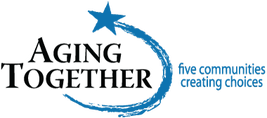|
NIH News In Health
For the older adult who is serving as caregiver of a loved one, here is a newsletter from the NIH focusing on coping and taking care of yourself. It also speaks about reducing falls, arthritis, eyesight, and dealing with dementia, among other topics. |
|
6 Signs of Caregiver Burnout & A Self-Help Approach to Coping with Caregiver Stress
From AgingCare come 2 articles talking about coping with stress. The first talks about 6 signs of burnout. The second talks about caring for yourself as the caregiver. |
|
It's important to to be informed about the practical side of caring for a loved one . Learn what to know and have set in place so you don't have to worry if you are no longer there to assist, even if temporarily. This Caregiver Checklist will help.
|
|
Practical Tips for Caregivers Concerned About Coronavirus
This is an extensive article on CDC guidelines for reducing the possibility of exposure to the COVID-19 virus, and speaks to things like postponing doctors appointments, reducing shopping trips, as well as tips for staying well at home and reducing boredom. |
|
What is Respite Care
Good disucussion on what respite care is, types of things respite providers can do to help, where to find respite and other invaluable topics. Respite Care Ideas
(These options are't all viable during the pandemic, but keep them in mind.) Respite care offers caregivers the opportunity to get away from caregiving for awhile while someone else watches over their loved one. Here are examples of where to look for respite care help. |
|
ADA Guide
Maintaining oral care is extremely important to the overall health of a person, but can be difficult to oversee as caregivers. The American Dental Association has extensive information on their website to help caregivers monitor their loved one's oral care, including those with dementia. |
|
Cornerstone Cares Webinar
For an informative webinar on caregiving and oral health. Pam Blankenship from the Virginia Department of Health discusses how oral health impacts our overall health, how oral health is related to chronic diseases, and necessary tips on taking care of a loved one’s teeth. |
|
Skilled Care Info from the US Dept. of Health & Human Services
It's very daunting facing the need for Long Term Care, Assisted Living, Nursing Home, or In-Home Care. There is a lot of information out there and lack of knowledge, high emotions, and stress can push a caregiver to make choices that are't optimal. Start withe the US Department of Health & Human Services website for factual information about options, definitions of skilled care categories, how to pay and other related subjects. You can also search for facilities and services in your area. |
|
Glossary for Skilled Care & Related Services
For quick help on Skilled Care, view the glossary from US Dept. of Health & Human Services where you will find definitions and links to relevant information. |
|
Sundowning is a symptom often found in people living with dementia. The NIH defines sundowning as "restlessness, agitation, irritability, or confusion that can begin or worsen as daylight begins to fade—often just when tired caregivers need a break." Following are some articles to help work with the challenges of sundowning including NIH's own tips.
This 2018 article from the Chicago Tribune talks about struggles with sundowning,
|
|
Another trait associated with dementia is wandering, and the added concern of getting lost. The Alzheimer's Association is a great resource to help wtih the challenges of wandering. If your loved one is home and living with dementia, please learn about how to alleviate the risk of wandering.
|
|
Michigan Medicine, of the University of Michigan, has a good article about helping someone with a shower and things to think about.
|
|
Aging Together serves the counties of Culpeper, Fauquier, Madison, Orange & Rappahannock
in the Commonwealth of Virginia. |
Aging TogetherWe're on Facebook!
|
DonateYour contribution to Aging Together
is Tax Deductible. Thank you! |
